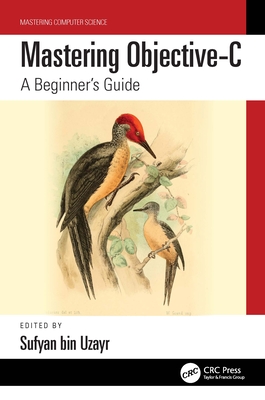图书简介
This text is an introduction to quantitative and qualitative research methods for undergraduate students majoring in Human Development and Family Studies, and now includes useful applications and key examples from human development.
Preface \\ The Goal of This Text \\ To the Student \\ To the Instructor \\ Organization of This Text \\ Acknowledgments \\ About the Authors \\ Chapter 1 Why Do Research on Families and Children? \\ What Are the Stages of Social Research? \\ How Is Research on Families and Children Different? \\ The Benefits of Well-Conducted Research \\ Study Questions \\ Chapter 2 The Ethics of Research on Families and Children \\ The Rights of Participants in Research on Families and Children \\ What Is the Role of the Institutional Review Board? \\ Fraud in Research on Families and Children \\ The Value of Ethically Sound Research \\ Study Questions \\ Chapter 3 Causal Inference in Research on Families and Children \\ Variables \\ Units of Analysis \\ Thinking Causally \\ Framing the Hypothesis \\ Causal Inference in Qualitative Research \\ Study Questions \\ Chapter 4 Searching and Reading the Literature \\ Reading a Journal Article \\ Where Do I Go From Here? \\ How Do Journal Articles Get Published? \\ Research Monographs \\ Edited Volumes \\ Other Types of Publications \\ Study Questions \\ Chapter 5 Sampling Issues \\ Defining the Population \\ Sampling Designs \\ How Large Does the Sample Need to Be? \\ How Do We Go About Choosing a Sampling Technique? \\ Study Questions \\ Chapter 6 How Do We Measure Concepts? \\ Characteristics of a Good Measurement Procedure \\ Levels of Measurement \\ What Are Reliability and Validity? \\ Some Thoughts on Reliability and Validity \\ Study Questions \\ Chapter 7 Working With Scales and Indices \\ Types of Scales and Indices \\ Using Existing Scales and Indices \\ How Do We Evaluate Scales and Indices? \\ How Do We Deal With Missing Data in Scales and Indices? \\ Study Questions \\ Chapter 8 Studying Families: Methods for Quantitative Data \\ Studying Families Through Experiments \\ Studying Families Through Survey Methods \\ Studying Families and Children Through Nonreactive Techniques \\ Types of Nonreactive Research \\ “Big Data” in the Study of Families and Children \\ Secondary Analysis of Sample Surveys \\ Ethics and Quantitative Methods \\ Some Limitations of Quantitative Methods \\ Study Questions \\ Chapter 9 Studying Families: Methods for Qualitative Data \\ Qualitative Research Compared to Quantitative Research \\ Types of Qualitative Strategies \\ Studying Families Through Observation \\ Ethics and Qualitative Research \\ Evaluating Qualitative Research \\ Study Questions \\ Chapter 10 Studying Families: Mixed Methods \\ Mixed-Method Approaches to Family Research \\ Mixed-Model Studies in Family Research \\ Some Closing Thoughts on Choosing a Research Strategy \\ Study Questions \\ Chapter 11 Using Other People’s Data \\ Advantages and Disadvantages of Secondary Analysis \\ Data on Children \\ Data on Adolescents \\ Data on Older Adults \\ Data on Families and Households \\ Sources of Secondary Data Sets \\ Future Trends in Secondary Data Analysis \\ Study Questions \\ Chapter 12 Analyzing Data on Families and Children \\ Descriptive Statistics \\ Interpreting Cross-Classification Tables \\ Inferential Statistics \\ Commonly Reported Tests of Statistical Significance \\ Some Thoughts About Statistical Analysis \\ Study Questions \\ Chapter 13 Advanced Topics in Family Data Analysis \\ The Idea of Nested Entities \\ Analyzing Nested Data \\ Individual Change Over Time \\ Final Thoughts on Nested Entities \\ Study Questions \\ Chapter 14 Evaluating Programs in Human Development and Family Science \\ Needs and Social Impact Assessment: What Is the Problem? \\ Outcome Assessment: Does It Work? \\ Process Research: How Does It Work? \\ Some Thoughts About Randomization in Evaluation Research \\ The Relationship Between Applied and Basic Research \\ Study Questions \\ Chapter 15 Politics of Research on Families and Children \\ Political Concerns in Research on Families and Children \\ Some Closing Thoughts \\ Glossary \\ References \\ Index
Trade Policy 买家须知
- 关于产品:
- ● 正版保障:本网站隶属于中国国际图书贸易集团公司,确保所有图书都是100%正版。
- ● 环保纸张:进口图书大多使用的都是环保轻型张,颜色偏黄,重量比较轻。
- ● 毛边版:即书翻页的地方,故意做成了参差不齐的样子,一般为精装版,更具收藏价值。
关于退换货:- 由于预订产品的特殊性,采购订单正式发订后,买方不得无故取消全部或部分产品的订购。
- 由于进口图书的特殊性,发生以下情况的,请直接拒收货物,由快递返回:
- ● 外包装破损/发错货/少发货/图书外观破损/图书配件不全(例如:光盘等)
并请在工作日通过电话400-008-1110联系我们。
- 签收后,如发生以下情况,请在签收后的5个工作日内联系客服办理退换货:
- ● 缺页/错页/错印/脱线
关于发货时间:- 一般情况下:
- ●【现货】 下单后48小时内由北京(库房)发出快递。
- ●【预订】【预售】下单后国外发货,到货时间预计5-8周左右,店铺默认中通快递,如需顺丰快递邮费到付。
- ● 需要开具发票的客户,发货时间可能在上述基础上再延后1-2个工作日(紧急发票需求,请联系010-68433105/3213);
- ● 如遇其他特殊原因,对发货时间有影响的,我们会第一时间在网站公告,敬请留意。
关于到货时间:- 由于进口图书入境入库后,都是委托第三方快递发货,所以我们只能保证在规定时间内发出,但无法为您保证确切的到货时间。
- ● 主要城市一般2-4天
- ● 偏远地区一般4-7天
关于接听咨询电话的时间:- 010-68433105/3213正常接听咨询电话的时间为:周一至周五上午8:30~下午5:00,周六、日及法定节假日休息,将无法接听来电,敬请谅解。
- 其它时间您也可以通过邮件联系我们:customer@readgo.cn,工作日会优先处理。
关于快递:- ● 已付款订单:主要由中通、宅急送负责派送,订单进度查询请拨打010-68433105/3213。
本书暂无推荐
本书暂无推荐













